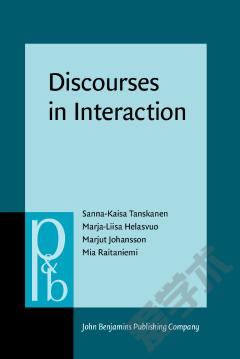Impoliteness in Interaction.
This study concerns the nature of impoliteness in face-to-face spoken interaction. For more than three decades many pragmatic and sociolinguistic studies of interaction have considered politeness to be one central explanatory concept governing and underpinning face-to-face interaction. Politeness' "evil twin" impoliteness has been largely neglected until only very recently. This book, the first of its kind on the subject, considers the role that impoliteness has to play by drawing extracts from a range of discourse types (car parking disputes, army and police training, police-public interactions and kitchen discourse). The study considers the triggering of impoliteness; explores the dynamic progression of impolite exchanges, and examines the way in which such exchanges come to some form of resolution. 'Face' and the linguistic sophistication and manipulation of discoursally expected norms to cause, or deflect impoliteness is also explored, as is the dynamic and sometimes hotly contested nature of an individual's socio-discoursal role.
{{comment.content}}








 京公网安备 11010802027623号
京公网安备 11010802027623号